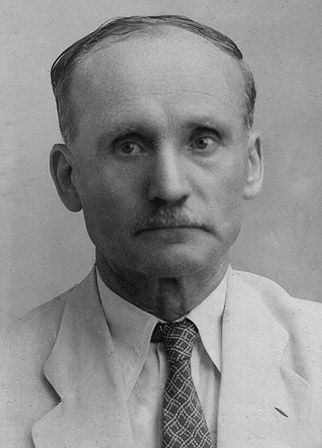| During the war, the Japanese military behaved brutally, especially towards the Chinese. But remarkably, as a little blonde boy, I was often shown great kindness by both Japanese officers and soldiers. I was constantly patted on the head for good luck. On one occasion, my parents and I were walking past a Japanese sentry who became annoyed because my mother and father did not show him sufficient respect by bowing very low. At bayonet point, he forced them both to kneel for over an hour on a hard concrete surface. Several Japanese officers saw what had happened and came over to me bringing cakes and a cold drink. While my parents kneeled in great discomfort, I was entertained by them on the lawn. It was a strange feeling seeing my parents suffer for such a long time, while I was having my head constantly patted. Kindness and brutality wrapped up in one package. When I was just five, I used to spend a lot of time just roaming around the streets of Kowloon. For some reason, I always felt safe on the streets, and my parents never objected to my adventures. One day I saw a large crowd obviously witnessing some interesting event and I pushed my way through a dozen adult legs until I broke through to the front of the crowd. There was a quick movement and then a human head rolled past me. I had witnessed my first summary execution. A Japanese officer had used his samurai sword to chop off that head. I was told later that the victim had been caught stealing. He had been tried, found guilty, and executed in a matter of minutes. That kind of rough justice was apparently common during the occupation. On another occasion, I was making my way home and was about to cross Nathan Road in Kowloon. There was a string of Japanese soldiers with fixed bayonets in the middle of the road, each standing about 10 feet apart. Their job was to ensure that nobody crossed the road. A senior Japanese officer had just arrived from Japan and a procession of cars was about to carry him past us on his way to his new headquarters. Since he was regarded as an emissary of the Emperor of Japan the route he was taking to his headquarters was regarded as a sacred passage. No foreigner was permitted to soil that passage by crossing the road before the eminent person had passed. And when he was passing us we were supposed to bow respectfully towards him. Since I had already witnessed several acts of brutality by Japanese soldiers, I took their threat seriously and waited patiently by the kerb. A Chinese woman approached the road, saw the soldiers and started to walk towards one, explaining in Cantonese that her children were waiting for her at home. Could she please cross the road? Without a word, the Japanese soldier rammed his bayonet into her stomach. Two other soldiers came out of the side street, casually grabbed a leg apiece and dragged her body away. We all watched silently as the soldiers did their gruesome work with calm efficiency. When the procession of cars carrying the emissary of the Japanese Emperor passed us, we foreigners bowed very, very low.
|
|||
